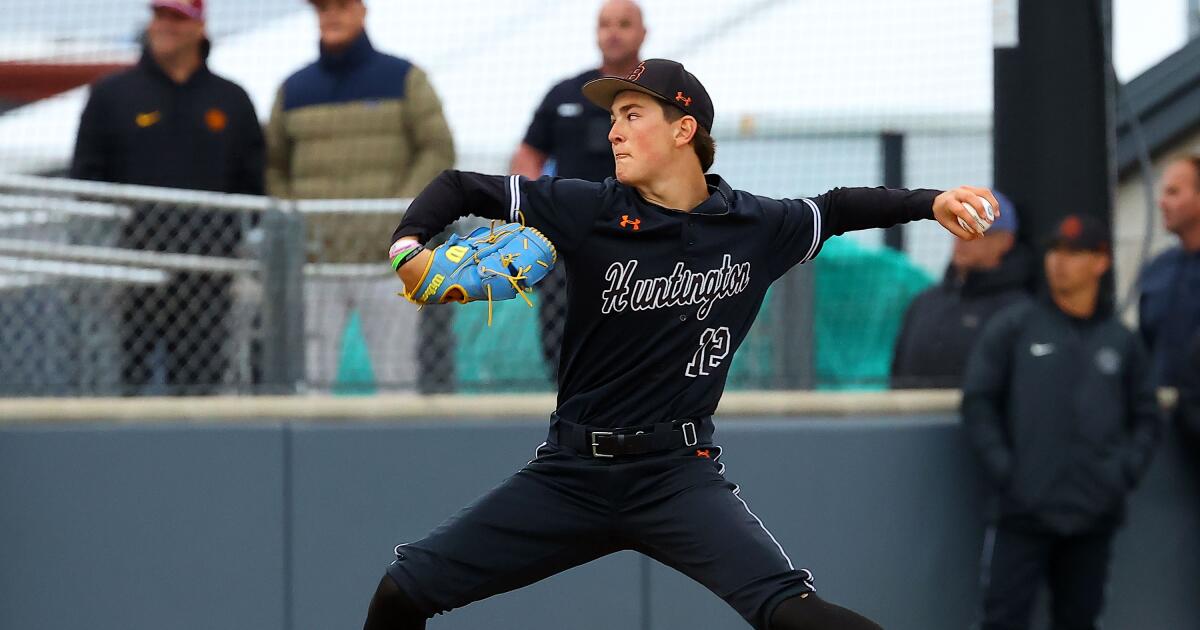Huntington Beach’s Jared Grindlinger reclassifies for 2026 draft
Jared Grindlinger, considered one of the top high school baseball prospects from the class of 2027, is reclassifying and will graduate as part of this year’s class, making him eligible for the 2026 amateur draft, Huntington Beach coach Benji Medure confirmed on Thursday.
Grindlinger is a left-handed 16-year-old pitcher who throws 93 to 95 mph. His brother, Trent, is a freshman at Tennessee, so that option of joining his brother at the end of this season is also possible. He’s uncommitted, but his decision to graduate this spring will add another top pitching talent for pro scouts to evaluate.
Medure said he was already receiving numerous calls on Thursday after word became known, and increased scrutiny is something with which Grindlinger will have to deal.
“He understands the pressure about what’s about to happen,” Medure said.
Grindlinger made his season debut on Wednesday against Loyola, striking out four and giving up five hits and three runs in three innings.
Grindlinger began the process in the fall of perhaps graduating early taking online classes.
